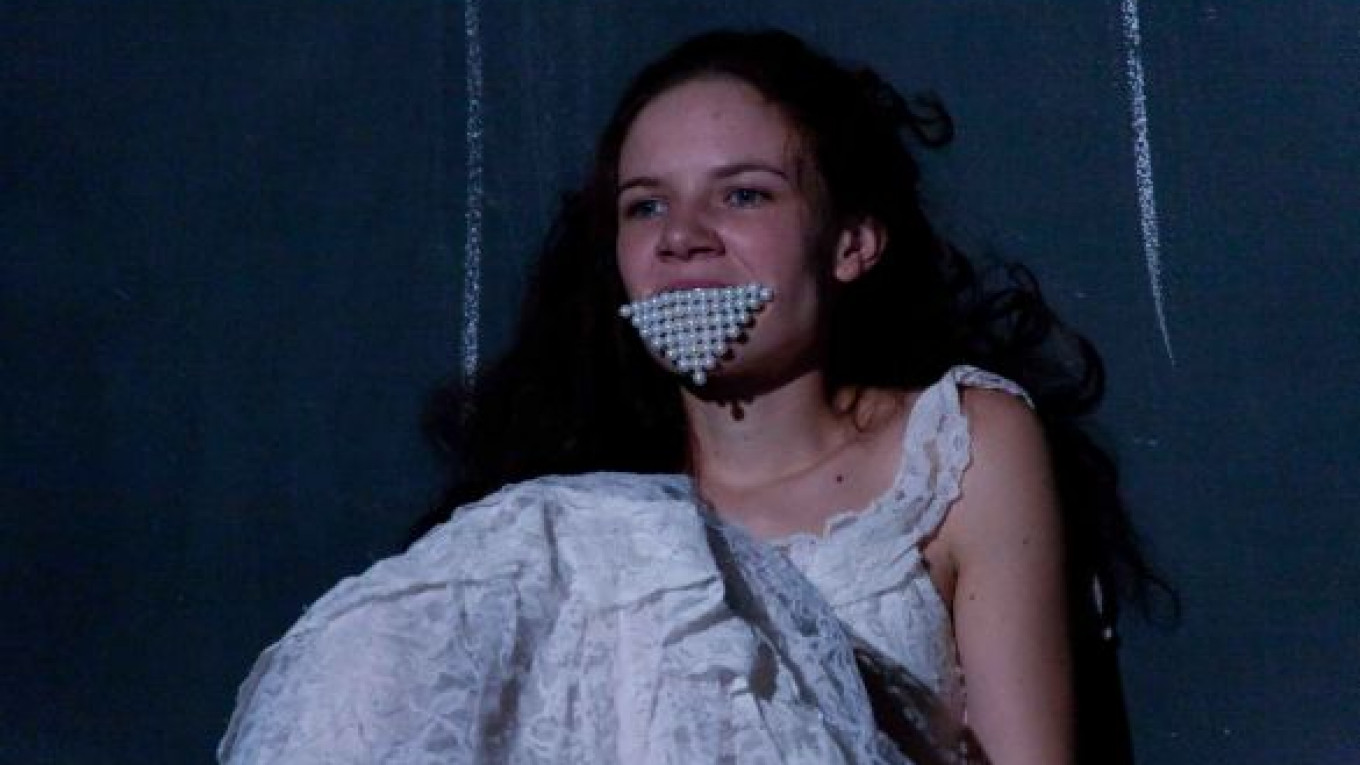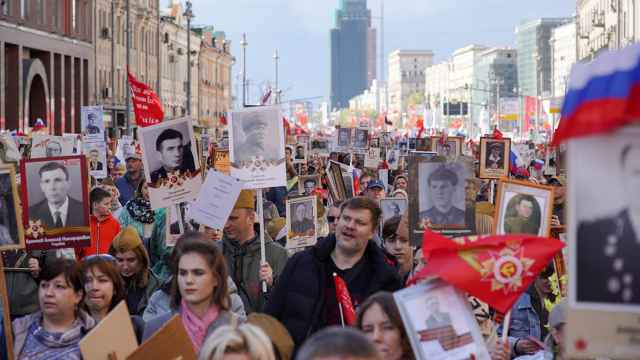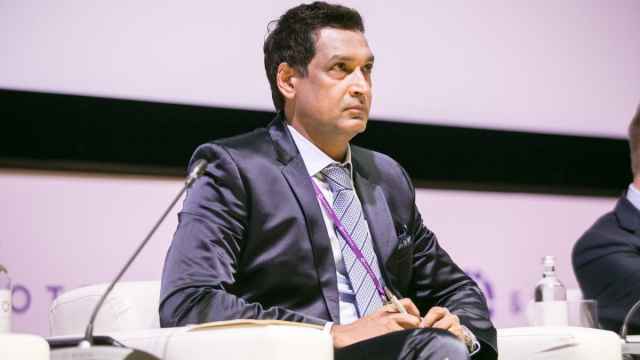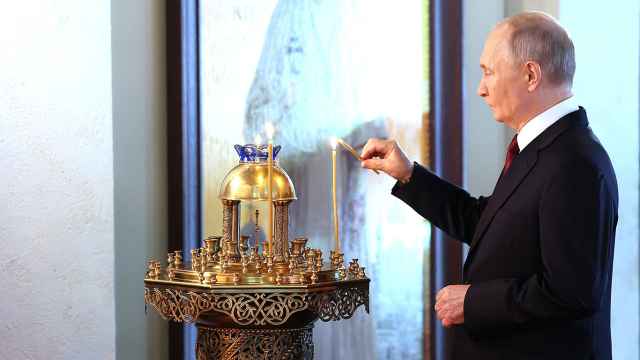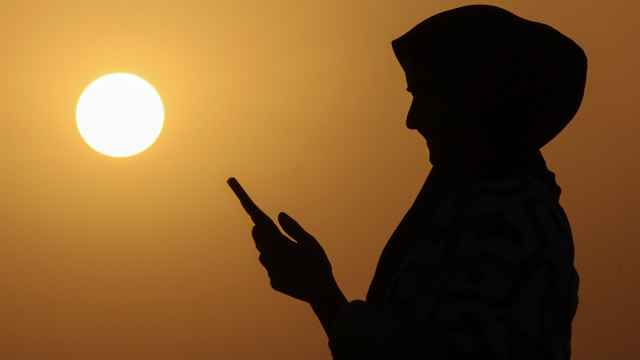You have to wonder if the people organizing theater festivals in Moscow actually hate local theater-goers.
There are more theater festivals in this city than, as an old high school friend used to say, you can shake a stick at. And if you've ever tried to catch all the events these festivals offer, you probably feel as though the person shaking that stick has been whacking you over the head with it.
Take the Golden Mask Festival, for instance. In the old days it used to be a two-week showcase of some of the best theater productions done in the previous season throughout Russia. After awhile they added the Russian Case festival within the Golden Mask Festival. Since its inception in 2000, this mini-fest has been a five-day event that collects various Russian theater productions that may be of interest to foreign producers, journalists and theater artists.
A few years back a third, non-competition element, Mask Plus, was added to the competition segment, which now runs for about three weeks. Mask Plus originally included several noteworthy productions from around Russia that had not been included in the competition part of the festival.
These days Mask Plus has grown into a huge parallel festival with numerous aspects, such as this year's Polish Theater in Moscow program, the New Play festival now in its second year, and the "regular" Mask Plus productions, which this year also include a handful of productions from abroad.
Taken together, all of the shows of this year's various Golden Mask branches will add up to 164 performances in 41 days. The whole Golden Mask conglomerate of events began on Saturday and runs through April 14.
Remember what I said about feeling like you've been hit over the head with a stick? Just try to go see all of that!
As we speak, some of Poland's finest directors are bringing their work to Moscow, most of them for the first time ever. They include Krzysztof Warlikowski's "A(Polonia)," Krystian Lupa's "Persona. Marilyn," "Railway Opera" mounted by Poland's Komuna/Warszawa and Russia's Liquid Theater, Woyczek Ziemilski's "A Small Story," Maja Kleczewska's "Babylon," and Grzegorz Jarzyna's "T.E.O.R.E.M.A.T.," based on Pier Paolo Pasolini's film "Teorema."
The Polish productions run from now through March 24 at various venues.
At the same time — and in full competition for your time, attention and money — there is an expansive program of performances, workshops and readings of contemporary Russian drama. Under the banner of the New Play festival, these events began March 3 and run through March 20.
Some of the New Play entries include recent Moscow productions, such as Pavel Pryazhko's "The Field" at the Contemporary Play School, Yaroslava Pulinovich's "Natasha's Dream" at the Meyerhold Center, and the Presnyakov brothers' "The Arrival of the Body" at the Playwright and Director Center.
But the majority of works on hand are coming to us from elsewhere.
"Casa M," created by director Lumnitsa Tsyku for the Coliseum Art Center of Chisinau, Moldova, is a documentary play in which four actresses discuss topics that are considered tabu in Moldovan society — primarily the violence of men against women. The show runs Monday at the Pushkin Theater affiliate on Ulitsa Sytina.
The following night at the Meyerhold Center, the Alexander Goncharuk Theater-Studio of Omsk will perform its production of Yaroslava Pulinovich's play, "A Star in the Blue Sky Does Not Know About Me." This play, which New Play curator Kristina Matviyenko calls a "road movie," tells the story of two girls on the lam after the police try to frame one of them by planting drugs in her possession.
Also from Omsk is Dmitry Yegorov's production of Vyacheslav Durnenkov's "Exhibits," about the conflict that arises in a provincial town when outsiders come in and try to turn the town into a living museum for profit. This production of the Omsk Drama Theater plays Wednesday at the Meyerhold Center.
The New Play festival is hosting three shows from Latvia — "Brivibas, 36" for the Dailes Theater of Riga, German Grekov's "Hanana" for the Liepa Drama Theater, and Krista Burane's "Battle At," also for the Leipa Drama Theater. These plays perform on consecutive days beginning Thursday.
American playwright Katori Hall will be represented in a workshop reading mounted by the Lyubimovka playwriting festival in collaboration with the Lark Play Development Center of New York. Hall's "The Mountaintop," which explores the life of Martin Luther King, will be presented March 18 at the Open Stage Project.
Other non-Russian plays being featured in the festival are Joanna Owsianko's "Tiramisu" and Dorota Maslowska's "We're All Fine Here" from Poland, as well as "Gods Are Fallen and All Safety Gone," a play by Selma Dimitrijevic, who was born in Croatia but now makes her home in London.
Several of the major figures in contemporary Russian drama will be represented with productions or workshop readings. They include Maksym Kurochkin and his play "The Schooling of Bento Bonchev," Mikhail Durnenkov and his play "The Easiest Way to Quit Smoking," and Yury Klavdiev, who will be represented by performances of two plays — "Yakuza Dogs" and "I Am the Machine Gunner."
For a complete schedule in English, visit the Golden Mask site. For annotated schedules in Russian, go to Matviyenko's Live Journal blog or to the Golden Mask Russian-language page, which provides expanded links to each production.
A Message from The Moscow Times:
Dear readers,
We are facing unprecedented challenges. Russia's Prosecutor General's Office has designated The Moscow Times as an "undesirable" organization, criminalizing our work and putting our staff at risk of prosecution. This follows our earlier unjust labeling as a "foreign agent."
These actions are direct attempts to silence independent journalism in Russia. The authorities claim our work "discredits the decisions of the Russian leadership." We see things differently: we strive to provide accurate, unbiased reporting on Russia.
We, the journalists of The Moscow Times, refuse to be silenced. But to continue our work, we need your help.
Your support, no matter how small, makes a world of difference. If you can, please support us monthly starting from just $2. It's quick to set up, and every contribution makes a significant impact.
By supporting The Moscow Times, you're defending open, independent journalism in the face of repression. Thank you for standing with us.
Remind me later.



